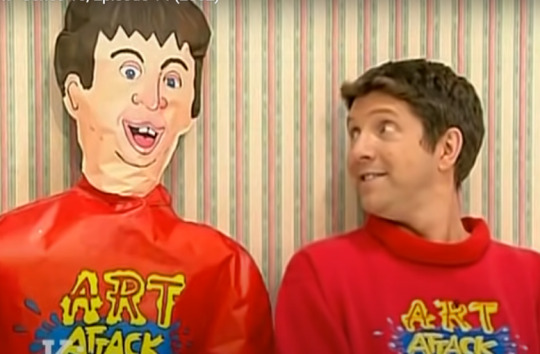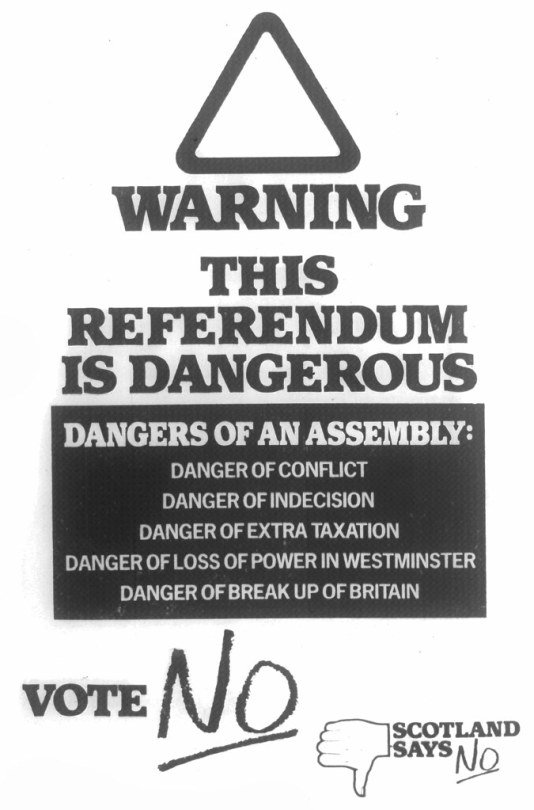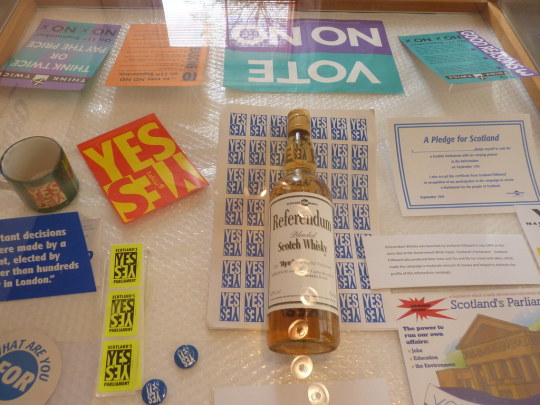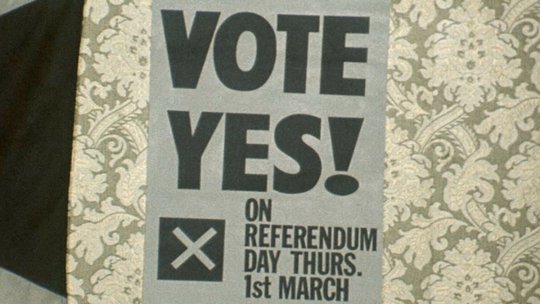#neil buchanan
Text
Amaury Guichon aka Chocolate Guy is the natural evolution of Neil Buchanan aka Art Attack Guy.
In this essay I will-
5 notes
·
View notes
Note
CITV's presenters and stars in a photoshoot on 2/4/1991.
(Source: Alpha Press.)

Cool picture.
Front Row L-R: Geoffrey Hayes, Bill Oddie, Rolf Harris, Tommy Boyd, Michaela Strachan, Keith Chegwin, Grotbags Carol Lee Scott, Julia Sawalha, Dexter Fletcher.
Middle Row L-R: Andrea Boardman, Evette Fielding, Neil Buchanan, Womble, Andrew Andy Crane, Rainbow Bungle, Danger Mouse.
Back Row L-R: Dungeon Master Treguard Hugo Myatt, Count Duckula, Rupert the Bear.
#CITV#Cosgrove Hall#Count Duckula#Danger Mouse#Rupert the Bear#Dungeon Master Treguard Hugo Myatt#Rainbow Bungle#Andrew Andy Crane#Womble#Neil Buchanan#Evette Fielding#Andrea Boardman#Dexter Fletcher#Julia Sawalha#Grotbags Carol Lee Scott#Keith Chegwin#Michaela Strachan#Tommy Boyd#Rolf Harris#Bill Oddie#Geoffrey Hayes
22 notes
·
View notes
Text
really miss this cunt

14 notes
·
View notes
Text

Just wanted to grace your dash with Neil Buchanan holding a giant paint brush.
9 notes
·
View notes
Text

He likes breakfast. He's one of those guys with one of himself??
6 notes
·
View notes
Text



Sooty & Co - "Sooty's Christmas Panto"
1 note
·
View note
Text
my sister: I think I'm going to channel Neil for my children's book signing on saturday
me: Neil... Gaiman?!
sister: omg no, Neil Buchanan
me: oH
those are very different Neils
I genuinely thought she was planning to exert "tall and darkly clothed" while standing over the colouring children
#this is an art attack#neil gaiman#neil buchanan#different neils#not that neil gaiman isn't probably lovely with children#both good neils#dear diary#lol
1 note
·
View note
Video
1 note
·
View note
Photo

Tanner Buchanan photographed by Mitchell Nguyen McCormack for L’Officiel Hommes Liechtenstein, September 2021. Tanner wears jacket Sandro, hoodie Helmut Lang, t-shirt Off-White, pants Neil Barrett, sneaker Cody TheCreative, socks Sock It Up
#Tanner Buchanan#fashion#aesthetic#menswear#style#sandro paris#neil barrett#helmut lang#cody thecreative
92 notes
·
View notes
Text
I’m in a bit of a slump rn….need requests!

#motley crue#nikki sixx#motley crue x reader#tommy lee#fluff#mick mars#vince neil#cute#fanfic#marvel#mcu#marvel men#marvel women#bucky barnes#james buchanan barnes#marvel x reader#marvel fanfic#natasha romanoff#steve rogers#i need requests#requests
6 notes
·
View notes
Text
man I keep sleeping good for like 6 hours or something then spend the next 2 hours falling asleep and waking up constantly so I’m just dead tired by the time I get up
#I keep having rly weird dreams about stuff I vaguely remember#uhh today was Neil Buchanan had a Ferrari collection and was nice cuz I used to watch HOW2 and then I got a ride in some other car#it’s wasn’t HOW it was art attack!!!#he was still nice about it tho
6 notes
·
View notes
Text

found this old newspaper clipping of my mum and dad's wedding (above) and my aunt and uncle's wedding (below)
1 note
·
View note
Text
kinktober '23

first time i've ever done something like this, so forgive me if it isn't up to par! (very much ib @floralcyanide)
ao3 | main master-list
i. strap-ons - patricia 'kitten' braden
ii. hate sex - jackson rippner
iii. roleplay - robert fischer
iiiv. collaring - paul sunday
v. praise/degradation - burt fabelman
vi. sex toys - agent donald buchanan
vii. overstimulation - jonathan crane
viii. virginity - eli sunday
ix. dry humping - neil lewis
x. bondage - jay (okja)
xi. fear play - jonathan crane
xii. semi-public - neil lewis
xiii. high sex - vw guy (taking woodstock)
xiv. sex tape - edward 'riddler' nashton
xv. impact play - thomas shelby
xvi. body worship - louis ives
xvii. cum play - joby taylor
xviii. wax play - jackson rippner
xix. daddy - burt fabelman
xx. lingerie - patricia 'kitten' braden
xxi. free use - calvin weir-fields
xxii. voyeurism - edward 'riddler' nashton
xxiii. panties - seth (looper)
xxiv. mutual masturbation - jim (the delinquent season)
xxv. dacryphilia - eli sunday
#kinktober#kinktober 2023#kitten braden x reader#patricia braden x reader#edward nashton x reader#jackson rippner x reader#jonathan crane x reader#neil lewis x reader#percy dolarhyde x reader#louis ives x reader#burt fabelmen x reader#calvin weir fields x reader#jim the delinquent season x reader#eli sunday x reader#raymond leon x reader#thomas shelby x reader#robert fischer x reader#klitz x reader#paul sunday x reader#seth looper x reader#jay okja x reader#agent buchanan x reader#donald buchanan x reader
561 notes
·
View notes
Text
Async mugwump linkdump

I'm on tour with my new, nationally bestselling novel The Bezzle! Catch me TOMORROW in ANAHEIM at WONDERCON: YA Fantasy, Room 207, 10 a.m.; Signing, 11 a.m.; Teaching Writing, 2 p.m., Room 213CD.

For 20+ years, I've processed all the information that came over my transom by blogging – mulling on why something I saw in the world caught my attention and trying to summarize it for strangers. This turns out to be a very powerful way to do a lot of different kinds of mental work:
https://pluralistic.net/2021/05/09/the-memex-method/
With Pluralistic, the solo blog I founded 4 years ago, I've moved into longer, more synthetic essays that try to connect the things that caught my attention today with all those things I've written about for the past two decades. That's also proven very fruitful:
https://pluralistic.net/2024/02/20/fore/#synthesis
But this move to longer works has a downside: sometimes I'll arrive at the week's end and have a list of things that caught my attention without there being any obvious way to connect them, and when that happens, I devote a Saturday edition to a linkdump. There's been 15 of these so far:
https://pluralistic.net/tag/linkdump/
Welcome, then, to the 16th Pluralistic linkdump, and a warning, this one starts with an obituary.
Ross Anderson was one of the heroes of the cryptographic revolution, a brilliant scientist and communicator, a fantastic activist, and a scorching curmudgeon. Ross died this week. He was 67, and had chronic heart issues as well as long covid:
https://www.lightbluetouchpaper.org/2024/03/29/rip-ross-anderson/
There's so much that's been written about Ross and his legacy already, and there's doubtless more to come, but I've picked out two pieces to point you to. The first is from Danny O'Brien, who was also the guy who talked me down off the ledge the first time Ross flamed me on a public mailing list, leaving me bleeding and furious:
https://news.ycombinator.com/item?id=39868983
As Danny says, Ross was "the model of a politically and socially involved computer scientist," a man whose blazing intellect, fierce moral center and relentless curiosity inspired a generation of technologists to think about politics, and a generation of political activists to think about technology. Few of Ross's eulogizers (thus far) have mentioned how Ross's passion came out as fury, and – as someone who counted Ross as a friend and inspiration – I think this is a serious omission. It's hard to imagine Ross doing all that he did without understanding the anger that – along with his ethics – fueled his passion.
(Compare with @neil-gaiman's classic essay on the anger of Terry Pratchett:)
https://www.theguardian.com/books/2014/sep/24/terry-pratchett-angry-not-jolly-neil-gaiman
The other obit that I want to point you to comes from Bill Buchanan, one of Ross's closest collaborators. Buchanan's memorial for Ross does a superb job of rounding up Ross's technical contributions to the field of security engineering:
https://medium.com/asecuritysite-when-bob-met-alice/ross-anderson-rip-59233c75fadf
Buchanan embeds videos for some of Ross's best speeches, links to his key papers (including the classic "Programming Satan's Computer," on "programming a computer which gives answers that are subtly and maliciously wrong at the most inconvenient moment possible), reminiscences of Great Moments In Ross Anderson, and terrific, lay-friendly breakdowns of some of Ross's key mathematical work.
As an unreasonable, angry person, I take great inspiration from people who channel their unreasonable anger to socially beneficial conduct – like whistleblowers. After Baltimore's Francis Scott Key Bridge was totaled by the 95,000-ton cargo ship MV *Dali(, a vast cohort of instant experts in structural engineering, sea freight and shipbuilding has taken to the internet with a slurry of takes on the Meaning Of the Bridge.
Some of these are very stupid indeed, like the idea that somehow "DEI" caused the collision. But you don't have to be an expert in maritime issues or civil engineering to understand the importance of this report from The Lever about shipping giant Maersk's culture of retaliation against whistleblowers:
https://www.levernews.com/feds-recently-hit-cargo-giant-in-baltimore-disaster-for-silencing-whistleblowers/
Maersk is the company that chartered the MV Dali; Maersk is also a key player in the cartel that controls the world's shipping. Maersk was just sanctioned by the Labor Department for retaliating against a whistleblower who complained of unsafe conditions on the ships that Maersk chartered:
https://www.dol.gov/sites/dolgov/files/OPA/news%20releases/Maersk-Sec%20Findings%20-FINAL%20071423_Redacted.pdf
Maersk's policy required employees to bring concerns to their supervisors before alerting the Coast Guard or others. This is not how that stuff is supposed to work. OSHA called this policy “repugnant” and a “reprehensible and an egregious violation of the rights of employees,” which “chills them from contacting the [Coast Guard] or other authorities without contacting the company first.”
The whistleblower – chief mate on the Safmarine Mafadi – complained of "unrepaired leaks, unpermitted alcohol consumption onboard, inoperable lifeboats, faulty emergency fire suppression equipment, and other issues." We don't know (yet) what happened on the Dali, but it's obvious that a company that retaliates against whistleblowers, rather than heeding their warnings, is prioritizing covering its ass, not operating safely.
Which brings me (inevitably) to Boeing, and to poor John "Swampy" Barnett, the Boeing whistleblower who took his own life earlier this month. Barnett's suicide has stirred up similar low-yield online chatter focused on whether Boeing assassinated Barnett, a question that categorically cannot be answered through the method of arguing with internet strangers.
But there is a lot to say about Barnett: in particular, there's the substance of his whistleblowing, the specifics of his complaints about Boeing. For that, we can turn to the always-fantastic Maureen Tkacik, whose American Prospect piece "Suicide Mission" is definitive:
https://prospect.org/infrastructure/transportation/2024-03-28-suicide-mission-boeing/
Tkacik does a great job of painting a picture of Swampy as a member of the tribe of unreasonable and angry people who refuse to sideline principle in order to get along. More importantly, Tkacik shows us what made Swampy so angry: a company that was hell-bent on lobotimizing itself by forcing out any technical expert who might point out inconvenient truths about the safety risks of high-profit strategies.
As Tkacik writes, Boeing once thought about "knowledge" in terms of expertise that could be brought to bear on the unimaginably complex task of making reliable, airworthy jets. But under the "value-engineering" financialized culture that arose after the McDonnell-Douglas merger, the company viewed knowledge as "intellectual property, trade secrets, and data." In other words, the point of knowledge was rent-extraction, not safety.
At the root of this transformation was the Jack Welch protege Jim "Prince Jim" McNerney, the former 3M CEO who took the helm at Boeing. McNerney was openly contemptuous of the company's senior engineers, branding them "phenomenally talented assholes" and rewarding managers who found ways to force them out of the company. It was McNerney who decided to produce the 787 "Dreamliner" in non-union shops, far from Seattle and its phenomenally talented assholes. Instead of these engineers, McNerney turned to Boeing suppliers to do the major engineering work on the 787 – despite the fact that many of these suppliers "lacked engineering departments."
The 787 was, infamously, a $80b-over-budget boondoggle, haunted by technical failures. Swampy was part of the "cleanup crew" that tried to salvage the 787, and witnessed first-hand how the company purged all the engineers who managed to ship the 787 despite McNerney and his "value engineers" and retaliated against workers who tried to unionize the South Carolina facility.
In particular, it was safety inspector who came in for the most savage punishment. When the FAA decided to let Boeing mark its own homework – hiring in-house safety inspectors to replace government inspectors – they pretended to believe that these Boeing-payrolled inspectors would be able to operate independently of Boeing's leadership. The inspectors tried to operate this way (not least because they were criminally liable for oversights that occurred on their watch) and McNerney's Boeing came down on them like a ton of aviation-grade aluminum.
To further neuter these inspectors, Boeing management ordered the inspectors to outsource their work to the mechanics they were supposed to be supervising – that is, the FAA outsourced safety checks to Boeing inspectors, and the inspectors outsourced those checks to the mechanics themselves. Tkacik: "Swampy believed relying on mechanics to self-inspect their work was not only insane but illegal under the Federal Aviation Administration charter."
Swampy kept careful records of every way in which this system produced unsafe aircraft and an unsafe workplace – including the day he discovered that someone had removed 400+ defective parts from the rejects box and installed them in aircraft in order to meet deadlines. Swampy's reports were key to establishing that the company's much-trumpeted "improvements" in safety reports were down to a culture of "bullying" – not any improvement in safety itself.
When Boeing went to war against Swampy, they barely bothered to pretend that they were playing by the rules. He was told one day that he was four-weeks into a 60-day "corrective action" that no one had told him about. The "corrective action" paperwork had a blank for Swampy's comments. He wrote, "Leadership wants nothing in email so they maintain plausible deniability. It is obvious leadership is just looking for items to criticize me on so I stop identifying issues. I will conform!"
Shortly thereafter, he was forced out altogether. Managers who tried to bring him on their teams were told that no one was allowed to hire John Barnett. His name appeared on a secret internal memo entitled "Quality Managers to Fire." Meanwhile, the value of Boeing shares had tripled.
After Boeing's 737 Maxes started falling out of the sky, Swampy's painstaking documentation of the flaws in the 787's production took on a new urgency. A program of random inspections of 787s found major defects in all of them ("Boeing Looked for Flaws in Its Dreamliner and Couldn’t Stop Finding Them" –WSJ). An Aviation Week diagram of problem spots with the 787 marked red arrows over "every single section, from the tip of the nose to the horizontal stabilizers":
https://aviationweek.com/air-transport/new-boeing-787-fix-details-reveal-extent-gap-check-challenge
Boeing's war on "brilliance" did its work: after everyone who understood how to make a safe aircraft was forced out of the company, financialized CEOs were able to cut corners on safety, triple the share-price, scoop up billions in government subsidies and bailouts, all without those pesky "phenomenally talented assholes" pointing out that they were going get (lots of) people killed.
Tkacik closes by saying that Swampy's former work colleagues refuse to believe he killed himself. A former executive told her "I don’t think one can be cynical enough when it comes to these guys…It’s a top-secret military contractor, remember; there are spies everywhere." I confess that I don't know what to make of that, but I'll say this: if Boeing killed Swampy, that's just one of hundreds of murders they committed. Whether or not Swampy's death was their fault, the deaths of everyone who went down on the 737 Maxes that crashed is on their hands.
That's what "profits before people" means, after all: sacrificing human lives to make yourself richer. It's the foundational tenet of the conservative movement, though that impulse is often checked by other factors, like human decency. It's only when sociopaths get a sustained run at leadership that you see what they really want.
Which brings me to the UK, which has been governed by the Conservative Party for 14 years. The Tories are tipped to get destroyed in the next election, and a long article in the New Yorker by Sam Knight catalogs the many ways in which Tory rule has devastated the UK:
https://www.newyorker.com/magazine/2024/04/01/what-have-fourteen-years-of-conservative-rule-done-to-britain
The thing is, after 14 years, it's impossible for the Tories to blame anyone else for the state of the UK. With strong Parliamentary majorities, Conservatives were able to govern as they pleased – the only compromises they made were between their own internal factions. The ideological commitment to making the rich richer, privatizing everything, subordinating governance to market forces – that's all them.
It's all them: the worst period for wage growth since the Napoleonic Wars, on them. The catastrophic traffic, housing, jobs market, and precarity, on them. Plummeting health, on them. The austerity, on them. The withering of the country's courts and prisons and police, its wilderness, its programs for young people and pensioners, its public health, its diplomatic corps, its road maintenance – on them.
A country where the police can't afford to prosecute burglaries – on them (4% of burglaries are prosecuted). The 2.5 year delay between a rape arrest and its trial? On them. Mass closures of schools that are literally crumbling? On them.
43% of the countries courts have closed. On them. Cuts to prison funding, coupled with longer sentences? On them.
And of course, Brexit – on them. Every part of it. The referendum. The referendum question. The failure to negotiate a deal with the EU. All on them. The collapse in British living standards, all on them. The fact that the 20% richest households in the UK have been untouched by all this? Also on them. But you might not notice it in London, where people earn an average of 400% more than people in Nottingham.
The only growth sector outside of London are the Citizens Advice Bureaux, whose client rosters are growing even as their funding is cut. Where the CAB once primarily catered to people who couldn't make ends meet due to disability, unemployment and other reliable predictors of economic distress, today, CAB advisors are seeing homeowners, people working two jobs. Desperation is "like a black hole, dragging more and more people in,"
More Conservative growth: Tories presided over a doubling in the rate of NHS antidepressant prescriptions, and a 20% rise in long-term health conditions. No wonder Tory Britain had the world's worst pandemic outcomes for a wealthy nation – that's on them, too.
Knight's article closes with a Tory MP who believes that "the key thing for the Conservatives now is to be more conservative…Toryism must have its day again."
We can't count on oligarchs to rescue us from oligarchy – not even when oligarchy's failures push society to the breaking point. There's always a rationalization explaining why we just had to lean harder into oligarchy.
You hear echoes of this in the pro-monopoly choir, whose squeals of outrage at the rise of a new anti-monopoly movement grow louder even as monopolism's failures grow clearer. One of the more tangible expressions of monopoly's failures is the Ticketmaster/Livenation octopus, which controls the entire live music industry – key venues, promotions, and ticketing. Ticketmaster fucks over music fans, but it also cheats famous musicians, the kinds of people with big microphones, so we know a lot about how bad it is:
https://pluralistic.net/2022/11/20/anything-that-cant-go-on-forever-will-eventually-stop/
Of course, the fact that Swifties hate Ticketmaster lets the pro-monopolists dismiss critics as foolish young girls, not Very Serious People Who Understand Economics and thus can see that Ticketmaster's monopoly is Good, Actually.
Last week, Congressman Bill Pascrell dumped a ton of litigation documents related to Ticketmaster's sleaze, and Matt Stoller broke them down:
https://www.thebignewsletter.com/p/explosive-new-documents-unearthed
The docs reveal how Ticketmaster's system of (formerly) secret kickbacks let it choke out any competitor, so that it could charge fans more and pay artists less. The mechanics of the scam are beautifully laid out in Stoller's post – as is the many ways in which it violated both the law and Ticketmaster's numerous consent decrees arising from its previous lawbreaking.
This kind of scam breakdown is essential. It's easy to think that we, as mere normies, can't hope to understand the machinations of the corporations that prey on us. But once you pierce the veil of performative complexity, what's left behind is a set of crude tricks and transparent ruses.
Here's one of those transparent ruses: Discord's terms of service require Discord users to actively opt out of its "binding arbitration" system. Binding arbitration is when you sign a contract saying you can't sue the company no matter how much it harms you – instead, you promise to have your disputes heard by an "arbitrator" (a fake judge paid by the company that screwed you). Unsurprisingly, these fake judges are awfully tolerant of their employers' crimes.
Discord says that once you click through its garbage legalese novella, you have just a few days to opt out of this binding arbitration clause – if you happen to miss that fine print, you have "consented" to giving up your legal rights.
But every time Discord changes its ToS, the clock for opting out starts ticking again, and Discord has just changed (that is, worsened) its ToS again:
https://discord.com/terms
That means that if you send an email right now to [email protected] with "I am confirming that as of the date of this email, I am choosing to opt out of binding arbitration to settle disputes with Discord" in the body, you can escape this consent theater:
https://mamot.fr/@[email protected]/112175832989845038
Consent theater is a particularly galling corporate ruse – the idea that we chose to allow them to abuse us. Consent theater gets more outrageous by the day. Take Soofa, who operate streetside digital kiosks that identify you by grabbing your phone's unique wifi and Bluetooth identifiers:
https://gizmodo.com/digital-kiosks-snatch-your-phones-data-when-you-walk-by-1851368948
Soofa sells this data to advertisers – claiming that by walking down a public street, you "consented" to being tracked and sold.
The only reason this flies is that the US hasn't passed a federal consumer privacy law since 1988's Video Privacy Protection Act, which bans video-store clerks from telling people which VHS cassettes you took home. Congress keeps on failing to pass a privacy law, despite garbage companies like Soofa.
But that hasn't stopped the administrative agencies from acting to defend your privacy! The FTC just dropped its latest Privacy and Data Security Update, a greatest hits list of the actions the Commission took while Congress failed:
https://www.ftc.gov/system/files/ftc_gov/pdf/2024.03.21-PrivacyandDataSecurityUpdate-508.pdf
One of the best things about the current administration is the number of extremely competent regulators who know exactly how much power they have and aren't afraid to use it to help the American people:
https://pluralistic.net/2022/10/18/administrative-competence/#i-know-stuff
The new FTC report, which details how the Commission's existing powers let it go after the commercial surveillance industry from smart doorbells to review fraud, from kids' programming to medical data, from lax security to data-breaches, is a bright spot in an otherwise grim week.
One more bright spot, then, before I wind up this linkdump. All week, I've been humming a half-remembered lyric, "come on baby/you're a link in this chain/put your hands together/and get free of the pain." For the life of me, I couldn't place it.
Last night, I searched for it (using Kagi, the post-Google search engine I've been paying for for the past month, and which I'm loving) and discovered that I had somehow completely forgotten a whole-ass band that I once loved: Toronto's Bourbon Tabernacle Choir, whom I saw live on many occasions.
The mystery lyric came from "Death is the Great Awakener," a fucking banger of a post-gospel track that I've been listening to on nonstop repeat as I wrote this. It's a hell of a tune and I'm intensely grateful to have it back in my life:
https://www.youtube.com/watch?v=Q6RUb63Tx3w

If you'd like an essay-formatted version of this post to read or share, here's a link to it on pluralistic.net, my surveillance-free, ad-free, tracker-free blog:
https://pluralistic.net/2024/03/30/dewey-502/#rip-ross-anderson

Image:
Waffleboy
https://www.flickr.com/photos/waffleboy/28198395465/
CC BY 2.0
https://creativecommons.org/licenses/by/2.0/
#linkdump#linkdumps#obits#ross anderson#rip#cryptographers#ftc#privacy#deliverism#tories#ukpoli#locational privacy#soofa#consent#consent theater#whistleblowers#corruption#francis scott key bridge#baltimore#maersk#osha#dali#boeing#John Barnett#aviation#maureen Tkacik#binding arbitration#discord#monopoly#ticketmaster
57 notes
·
View notes
Text
Characters I'm willing to play:

Cillian Murphy's world
Cillian Murphy (any era)
Jackson Rippner
Jonathan Crane
Emmett
Thomas Shelby
Raymond Leon
Darren (Pig)
Robert Fischer
Neil Lewis
Patricia 'Kitten' Braden
Shivering Soldier
Davin McDerby
William Killick
Jonathan Breech
Mike Kiernan
Agent Buchanan
Emma Skillpa
John Skillpa
Damien
J. Robert Oppenheimer
Lenny Miller

#cillian murphy#cillian x reader#cillian x y/n#cillian murphy smut#cillian murphy x reader#cillian murphy x y/n#cillian murphy x oc#roleplay#neil lewis x you#raymond leon x you#thomas shelby x you#jackson rippner x you#etc.
34 notes
·
View notes
Text








On March 1st 1979 Scots voted in favour of Devolution, but failed to reach the required 40% of the population in favour of implementing it - due to 36% of the electorate not voting.
THE PLOT.
The introduction of devolution legislation in 1976 was largely the product of nationalist pressures on the Government. James Callaghan's Labour government had a majority of only three after the 1974 (October) election and by 1977 had no majority at all after a series of by-election defeats. The government was therefore vulnerable to pressures from the Scottish National Party and Plaid Cymru, who between them won 14 seats at the election (SNP 11, Plaid Cymru 3). The Kilbrandon commission had reported in 1974, recommending the establishment of a Scottish parliament and endorsing the principle of devolution.
A combined Scotland and Wales Bill was introduced in November 1976. It gained a second reading only after referendums in both Scotland and Wales had been conceded. The Shadow Secretary of State for Scotland, Alick Buchanan-Smith, and one of his front benchers, Malcolm Rifkind, resigned their posts when the Shadow Cabinet decided to oppose its second reading. On the first day of committee 350 amendments were put down. Michael Foot, (then Lord President and Cabinet Minister responsible for the devolution bill) was reluctant to impose a guillotine. After nearly 100 hours of debate only three and a half clauses of the bill had been considered. A guillotine motion was tabled but defeated in February 1977. The Bill was withdrawn.
In November 1977 separate Bills for Scotland and Wales were introduced, with support from the Liberals. This reduced opposition from those who had previously opposed the combined Bill on the grounds that the Welsh did not really want devolution. This time the guillotine motion was won.
As the committee stage was nearing its end, it scrutinised an amendment from Labour backbencher George Cunningham. It required the Secretary of State to lay before Parliament an order repealing the Act unless at least 40% of the eligible electorate voted "yes". The amendment was strongly opposed by the Government, but they lost the vote by 166 votes to 151.
In the referendum, on 1st March 1979, Scotland voted in favour of devolution by 52% to 48% - but only 32.9% of the electorate had joined the majority. In Wales the vote was against devolution, by 80% to 20%. The Acts were repealed the next month.
The Government was not helped by the extent of internal dissent within the Labour party. There was an active Labour 'Vote No' campaign in Scotland, of which Brian Wilson was Chairman, and Robin Cook a Vice-Chairman together with Tam Dalyell.
In Wales, Neil Kinnock was among those who campaigned for a "no" vote. During the last few days of the campaign in Wales, the pro-devolution Labour party -TUC group argued that a "No" vote would be a vote for the Tories, and a vote against the Government. This was a gamble that did not pay off; the scale of the "No" victory meant that those who had campaigned against the government could feel vindicated.
A motion of no confidence in the government was tabled by the Conservatives and supported by the SNP, the Liberals and eight Ulster Unionists. This motion was carried by one vote on 28th March 1979. The next day Callaghan announced that Parliament would be dissolved.
The 1979 Results:
Scotland: Question: Do you want the provisions of the Scotland Act 1978 to be put into effect ?
Yes 1,230,937 (51.6%)
No 1,153, 502 (48.4%)
Rejected ballot papers 3,133
Electorate 3, 747,112
Turnout 63.6%
But, we Scots are known the world over for this saying. Try, try and try again we did and won our parliament. We did and we put the party in powder who would take us to freedom. We will never give up our fight to be an Independent country once more.
19 notes
·
View notes